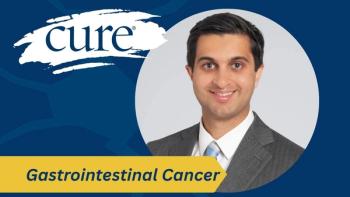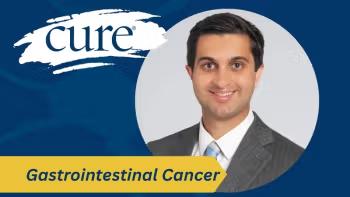
- Rare Cancers Special Issue
- Volume 1
- Issue 1
Down to the Almighty Dollar: Socioeconomic Status Can Affect Cancer Outcomes
Key Takeaways
- Socioeconomic status influences anal cancer survival, with lower-income patients experiencing higher mortality risks, especially among males, older individuals, African-Americans, and unmarried patients.
- Income disparities do not affect the initiation of radiation therapy, but completing treatment demands significant social and network support.
A recent study found that socioeconomic status can play a role in survival for patients with anal cancer.
ALTHOUGH TREATMENTS FOR ANAL cancer are often effective and even curative, patients with the disease who live in areas with a low median-household income are at increased risk of early death, according to the results of a recent study published in Cancer, a peer-reviewed journal of the American Cancer Society (ACS).
The lifetime risk of receiving a diagnosis of this rare form of cancer is about 1 in 500, according to the ACS, which estimates that over 8,500 cases, mostly in women, will be diagnosed in 2018.
“Patients with anal cancer who live in areas of poverty are more likely to die overall, but even more likely to die from their anal cancer,” Daniel J. Becker, M.D., of NYU Langone Health’s Perlmutter Cancer Center in New York City, said in an interview with CURE®.
“So, there is something about poverty that is associated with them doing worse with their anal cancer.” The study included 9,550 patients with squamous cell carcinoma of the anus. The researchers used patients listed in the U.S. Surveillance, Epidemiology, and End Results registry from 2004 to 2013. Patients were a median age of 58 years, and most had non-metastatic disease; 85 percent were white, 63 percent were women and 38 percent were married. Incomes ranged from $46,840 or less to $70,820 or greater.
The findings showed that patients living in areas with a lower median household income had worse overall and cancer-specific survival compared with patients in highestincome areas. From the lowest to the higher income levels, the risk of dying was 31 percent. The increased risk of cancer-related death ranged from 34 to 22 percent for the lowest to higher incomes.
Worse cancer-specific survival was seen in male, older, African-American and unmarried patients. Earlier year of diagnosis, higher-grade and late-stage disease also played roles in cancer-specific survival. “The overall goal is to determine which factors (we can) change to make sure that how much money you have does not predict how you do with anal cancer,” Becker said. “As a community, we don’t believe that should be the case. Everyone should have access to complete care.”
Some small tumors can be surgically removed; sometimes chemotherapy and radiation therapy are needed afterward. In cases where surgery cannot be performed, standard treatment involves radiation therapy combined with chemotherapy.
Income did not play a role in the likelihood of a patient initiating radiation therapy, the researchers noted. “It is impressive that they start radiation therapy, but (it) requires a lot of resources to be able to go to radiation daily and be able to continue your chemotherapy,” Becker said. “There’s a lot of sort of social support and other sort of network support that goes into allowing people to complete that therapy.”
Research like this can help identify which patients are at high risk so that they can have access to more resources, such as case managers, transportation or additional social support, Becker said. “Anal cancer is a hopeful cancer. With early recognition and intensive therapy with chemoradiation, we cure the majority of cases now,” he said. “It’s a tough road, and it takes a lot of support for the patients and their caregivers. It’s a hard therapy, but there is a very good chance of cure.”
Articles in this issue
over 7 years ago
Success in Cancer Care Doesn't Happen Overnightover 7 years ago
Driving Research in Rare Cancersover 7 years ago
Progress in Sarcoma Treatment, But Still a Long Journey Aheadover 7 years ago
Waldenstrom Macroglobulinemia: The Discovery and What Lies Aheadover 7 years ago
Power in the Words: Discussing Palliative Cancer Careover 7 years ago
Advances and Combinations Raise Sights on Uveal Melanomaover 7 years ago
Turning the Tide in Glioblastoma


